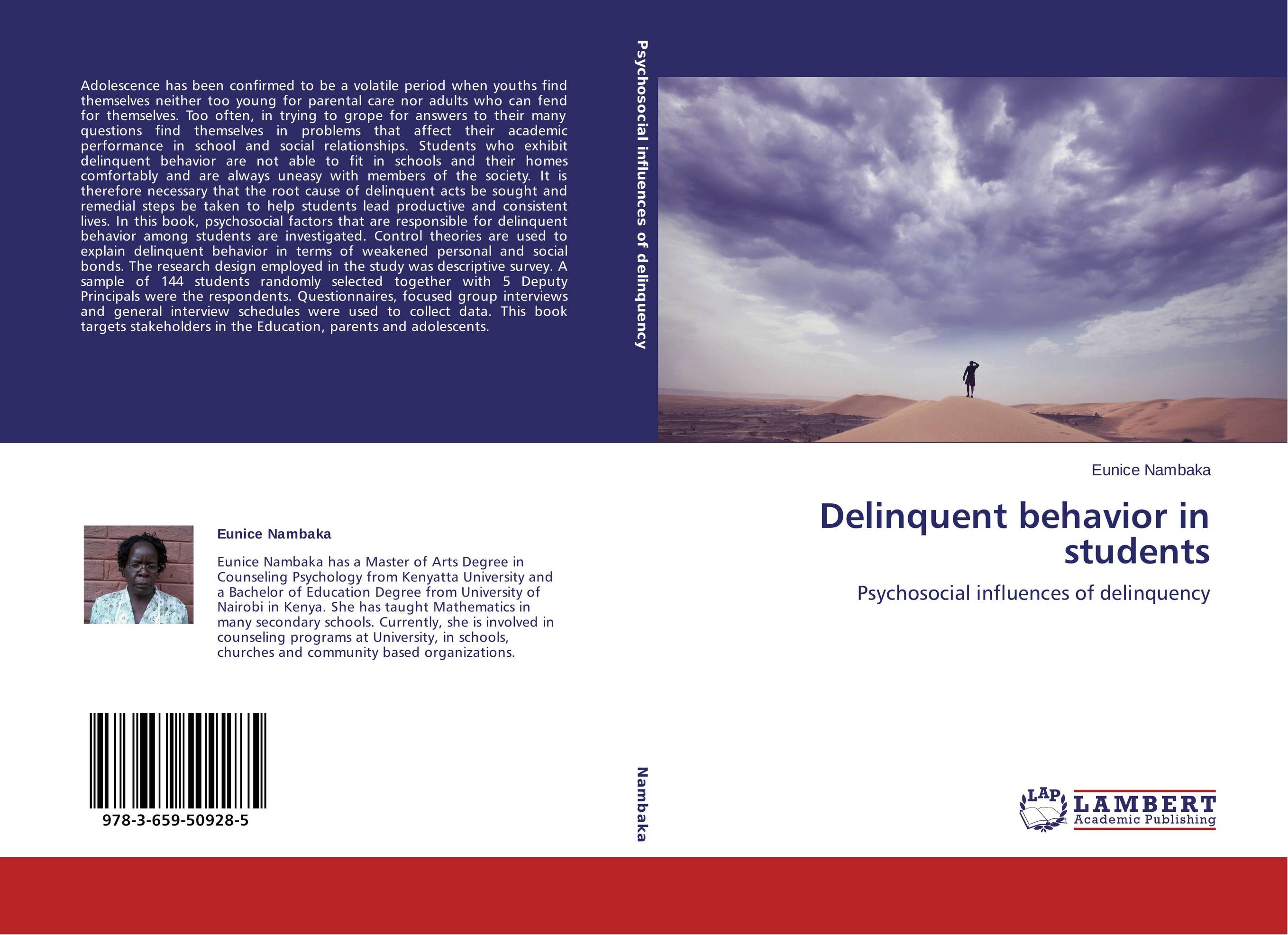| Поиск по каталогу |
|
(строгое соответствие)
|
- Профессиональная
- Научно-популярная
- Художественная
- Публицистика
- Детская
- Искусство
- Хобби, семья, дом
- Спорт
- Путеводители
- Блокноты, тетради, открытки
Delinquent behavior in students. Psychosocial influences of delinquency

В наличии
| Местонахождение: Алматы | Состояние экземпляра: новый |

Бумажная
версия
версия
Автор: Eunice Nambaka
ISBN: 9783659509285
Год издания: 2014
Формат книги: 60×90/16 (145×215 мм)
Количество страниц: 112
Издательство: LAP LAMBERT Academic Publishing
Цена: 32315 тг
Положить в корзину
| Способы доставки в город Алматы * комплектация (срок до отгрузки) не более 2 рабочих дней |
| Самовывоз из города Алматы (пункты самовывоза партнёра CDEK) |
| Курьерская доставка CDEK из города Москва |
| Доставка Почтой России из города Москва |
Аннотация: Adolescence has been confirmed to be a volatile period when youths find themselves neither too young for parental care nor adults who can fend for themselves. Too often, in trying to grope for answers to their many questions find themselves in problems that affect their academic performance in school and social relationships. Students who exhibit delinquent behavior are not able to fit in schools and their homes comfortably and are always uneasy with members of the society. It is therefore necessary that the root cause of delinquent acts be sought and remedial steps be taken to help students lead productive and consistent lives. In this book, psychosocial factors that are responsible for delinquent behavior among students are investigated. Control theories are used to explain delinquent behavior in terms of weakened personal and social bonds. The research design employed in the study was descriptive survey. A sample of 144 students randomly selected together with 5 Deputy Principals were the respondents. Questionnaires, focused group interviews and general interview schedules were used to collect data. This book targets stakeholders in the Education, parents and adolescents.
Ключевые слова: delinquency, adolescence, Students, Psychosocial factors



